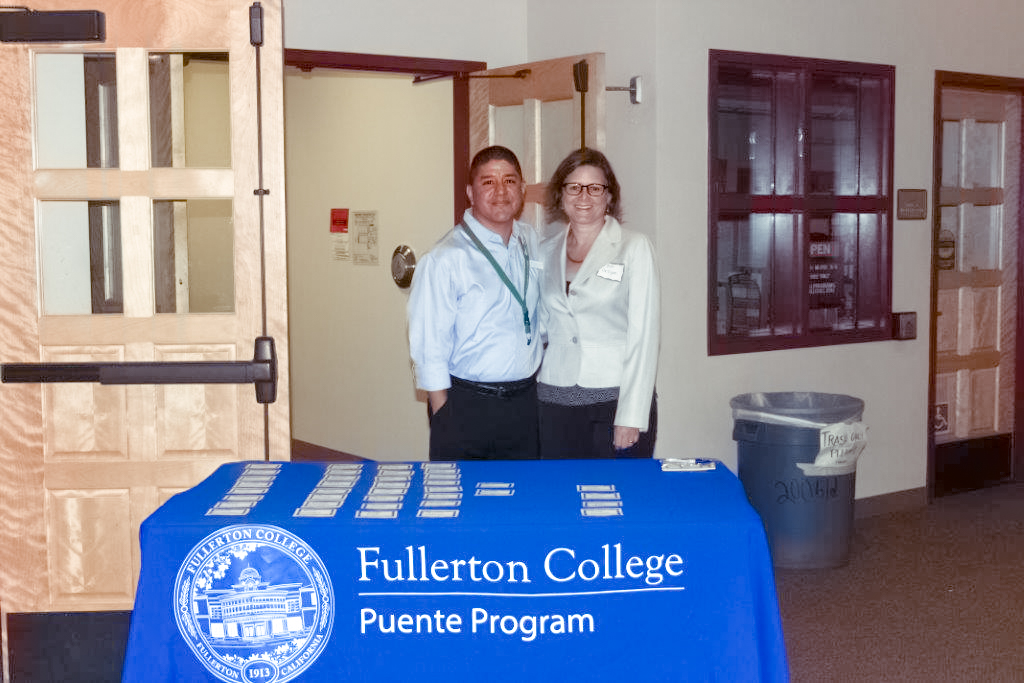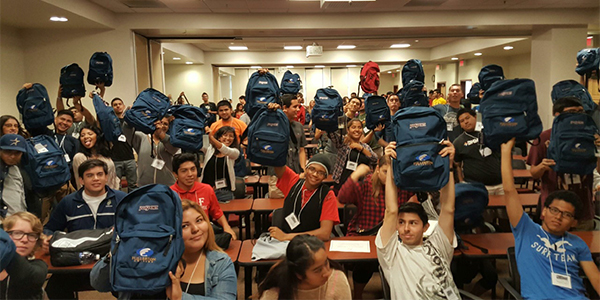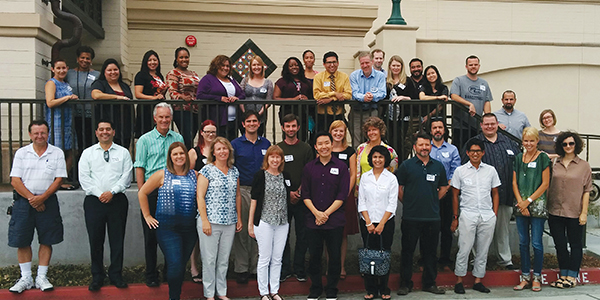Programs
Student Equity funded programs reach students through instructional and student services offices across campus. The office supports over thirty projects across campus. Equity programs are funded on a yearly basis through a proposal and approval process overseen by the Student Equity Committee. For more information about the proposal process, please see the Plan section of this site.
The following are a few of the programs supported by Student Equity funding. For a full list of current and previously equity funded projects, see 2017-2019 Funded Equity Projects (receiving funding spring 2018-June 2019) and 2015-2016 Equity Programs and Goals.
Student Diversity Success Initiative
The Student Diversity Success Initiative (SDSI) is designed to increase success among at-risk African-American and Latino male students. SDSI supports these students by providing specialized services including a program orientation, academic counseling, life skills coaching, tutoring, monitoring academic progress, and specialized workshops for SDSI students.
Individualized attention is given to SDSI students, including a private in-take session with an academic counselor and life skills coach. During summer 2015, the program used equity funds to implement a new math boot camp component. In 2012-2013, the program served 109 students, while in 2013-2014, 85 students were served. In the 2014-2015 academic year, SDSI anticipates reaching 120 students.
Incite
The Incite program provides a comprehensive range of support for student athletes, such as: an orientation (where program guidelines are discussed); required study hall with monitored attendance and tutorial assistance; counselor assistance for educational planning; academic success workshops with topics that include time management, budget management, note-taking, test-taking strategies etc.; a staff member who serves as a liaison between the various coaches and the Incite Program, transfer/culture-related campus activities and field trips; a comprehensive student survey; and monitoring of academic progress.
During spring 2012, the success rate of student athletes in all non-PE courses by ethnicity showed African-American student athletes had a 65% success rate, Hispanic student athletes had a 59% success rate, Asian/Pacific Islander student athletes had a 74% success rate, and White student athletes had an 81% success rate. When looking at course success rate for all non-PE courses in spring 2012, all students who completed time in the Incite program had higher rates of success than student athletes who did not participate.
Puente
The Puente Project is an established and proven program that helps underrepresented students persist and succeed at Fullerton College and ultimately transfer to a four-your college or university. Puente students are a cohort that becomes a learning community, taking two Counseling courses per academic year alongside two English courses (either one level below transfer or transfer-level). The curriculum is multi-cultural in order to help students connect to the material and therefore, persist and succeed. Students also participate in a mentorship programs that connects the students to community professionals that help mentor them about college and possible career paths. Furthermore, students participate in out of class cultural and social activities as well as campus tours which allow the students to bond with others in Puente and provides them with tangible and specific goals connected to their transfer institution.
In previous evaluation of the Puente program by the Student Success Committee, fall to fall persistence for Puente students for the three cohorts analyzed is steady at about 90%. There is a slight increasing trend of full-time persistence from the 2009-2010 cohort to the 2011-2012 cohort. Overall Puente students have higher retention and success rates when compared to similar students (first-time freshmen) in English 60 & 100 and Counseling 101 & 163 courses. Student Equity funding is allowing the program to develop a second cohort, basic skills and transfer-level course completion by providing tutoring and access to textbooks, and higher rates of transfer by providing funding for local and state-wide university tours.

Other Programs
Veterans Resource Center
Foster Youth Success Initiative (FYSI)

Summer Bridge







